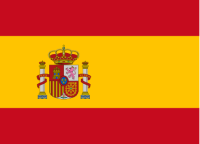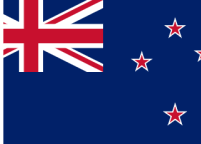In this guide, we will cover how New Zealand is the best country for international students if they want to work and settle in New Zealand after their studies. We will also do a high-level comparison of NZ with other key countries like the UK, Canada, the US, and Australia.
1. Why New Zealand is Still a Top Choice
- Bring Your Family
One spouse can study for a Master’s degree, while the other spouse can apply for an open work visa. Dependent children can even study as domestic students (i.e., for free), which is a significant advantage over some other countries. - Flexible PR Pathways
New Zealand has announced a Simplified Residence Visa Policy. A student completing a Master’s degree (which can be 1–2 years) can potentially qualify for PR after just one additional year of work in New Zealand—adding up to 2 years total to become eligible for residency. - Long Post-Study Work Permits
After finishing a Master’s degree, students can usually get up to 3 years of post-study work rights. Within that time, achieving the required work experience to apply for residency is very realistic.
2. PR in 2 Years: How Does It Work?
- Study a Master’s Program
- Depending on the program, it could be 1 year, 1.5 years, or 2 years.
- Required English proficiency: usually 6.5 IELTS overall (with no band less than 6) for postgraduate study.
- Work in New Zealand for 1 Year
- After graduation, or sometimes even if your spouse is the one working, you accumulate 1 year of full-time work experience.
- Apply for Simplified Residence
- You earn 5 points for completing a Master’s in New Zealand.
- 1 year of skilled work experience in NZ gives 1 additional point, bringing the total to 6 points—enough to apply for residency under current rules.
Bonus: If your spouse already has a Master’s degree from another country and gets a full-time job in NZ right away, you might not even need to wait the full 2 years.
3. Requirements for a New Zealand Student Visa
- Academic Admission
- IELTS or equivalent (usually 6.5 for Master’s; lower band requirements for undergraduate or diploma programs).
- If you studied in an English-speaking country (like the UK), you may be eligible for an English waiver.
- Financial Evidence
- Tuition Fee for the first year.
- Living costs of at least NZD are $20,000 for one year.
- Medical Insurance and Airfare for the first year.
- A payment plan or proof of funds for subsequent years if your course is longer.
- Clear Character & Health Checks
- Police clearance certificate (PCC) and medicals are generally required.
4. Post-Study Work Visas
New Zealand grants post-study work visas that typically match the duration of your study. For example:
- Bachelor’s Degree (3 years): 3-year post-study work visa.
- Master’s Degree (1–2 years): Usually up to 3 years of post-study work rights.
- Diploma Programs: Possible work rights if the diploma is on the Green List or leads to in-demand skills.
(In contrast, some countries do not offer post-study work permits for diploma courses.)
5. High-Demand (Green List) Programs
- Engineering (civil, mechanical, electrical, etc.)
- IT/Computer Science
- Healthcare (nursing, caregiving, etc.)
- Early Childhood Education (ECE)
- Graduate Diploma in Teaching (ECE) is especially popular.
- 1-year or 13-month program that allows you to bring your spouse and children.
- This leads to teacher registration in New Zealand, which is on the Green List.
These in-demand fields pave a clearer path to permanent residency.
6. Moving from Other Countries to New Zealand
If you’re a student in the UK, Canada, or elsewhere and struggling to find job sponsorship, it may be easier to switch to New Zealand:
- Eligibility: If you’ve maintained a good visa status and have no legal issues, you can apply for a New Zealand student visa.
- Recognition of Previous Studies: Students with a UK degree might be exempt from IELTS if they meet English requirements through their prior coursework.
- Flexible Intakes: New Zealand institutions often have multiple intakes throughout the year, making it easier to start studying
7. Cost of Studying in New Zealand
- Master’s programs can start at around 16-24k USD.
- Costs vary by institution type:
Despite inflation worldwide, New Zealand’s system remains straightforward: Show funding for the first year, plus a plan for subsequent semesters if needed.
8. Recent Government Immigration policy
New Zealand has introduced several policies to improve life for students and their families:
- Work Rights for Partners of Student Visa Holders (July 2024): Partners of students in high-demand qualification programs can now work in New Zealand.
- Post-Study Work Visa Updates: Changes aim to support students transitioning to the workforce. Read more.
- Faster Partnership Visa Processing: Improved timelines for partnership resident visas.
- Extended Visa Duration for Partners (October 2024): Partners of New Zealanders now get longer visa durations. Learn more.
- Work Rights for Migrant Workers’ Partners (December 2024): Partners of migrant workers can now work. Details here.
8. Final Thoughts
New Zealand stands out for its:
- Straightforward PR Pathways
- Opportunity to Bring Dependents
- Multiple Intake Periods & Post-Study Work Visas
- High Demand for Skilled Workers (especially in Engineering, Construction, Healthcare, and Education)
If you’re keen to explore New Zealand, get in touch with professionals like Victor Immigration for personalized guidance. As always, knowledge is power—stay informed and plan wisely.
Ready to move to New Zealand?
- If you have further questions, want a more detailed conversation, or want to take advice from a licensed immigration advisor, mail us @ applications@immigartionconsultancies.com
Reference














